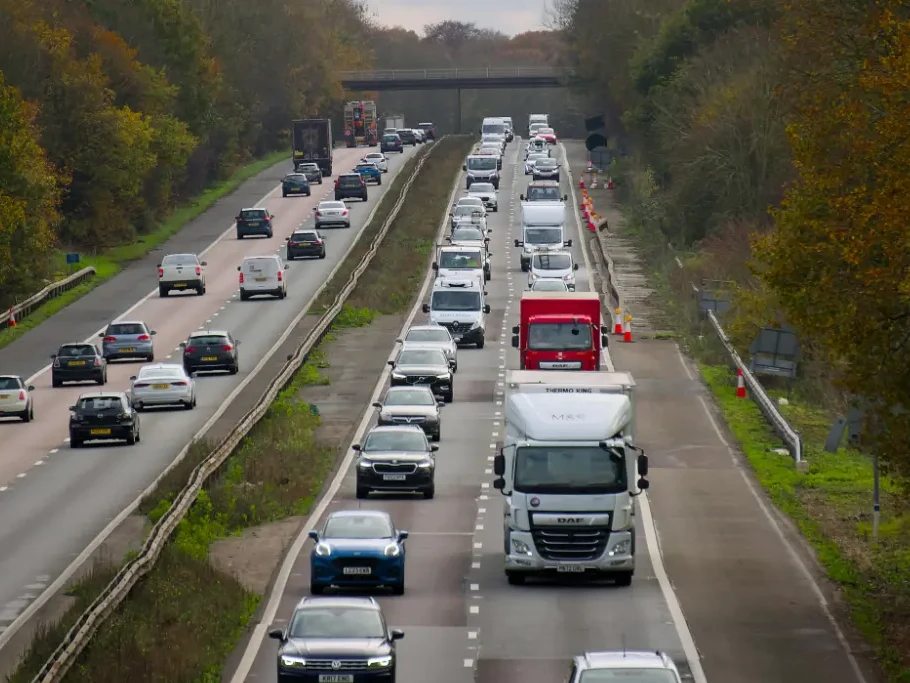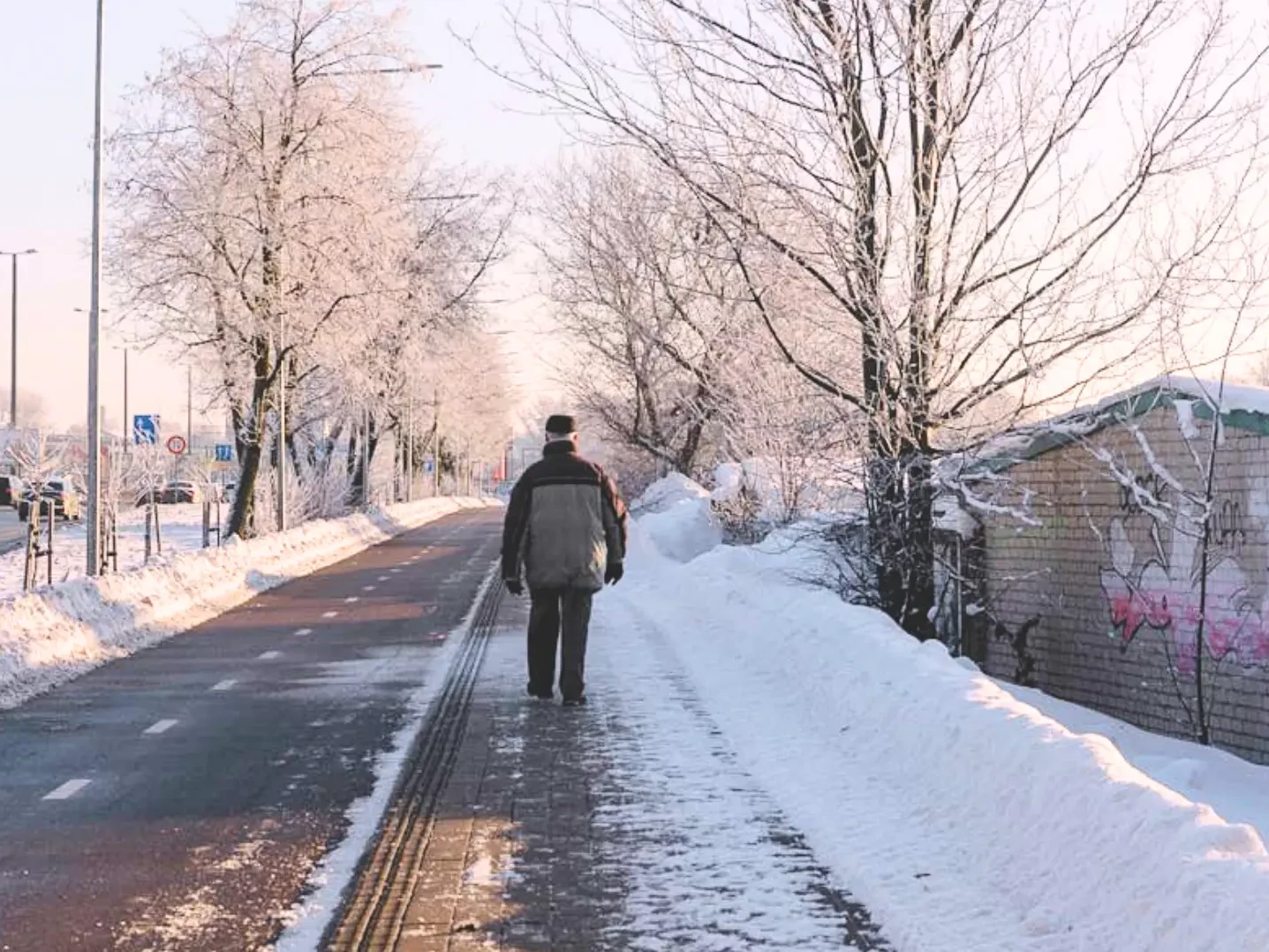Share this article
Is bike filtering legal? And if you’re hit while doing it, can you still make a claim?
Whether you’re a cyclist or motorcyclist, knowing your rights is essential.
Read on as we break down what the law says – and share what really happens when filtering leads to an accident.
What does bike filtering mean in Scotland?
Bike filtering means riding a bicycle or motorcycle between lanes of slow or stationary traffic, often to move ahead of congestion. Bike filtering is legal in Scotland for both cyclists and motorcyclists, provided it is done with caution, at low speeds, and in appropriate traffic conditions. As the name suggests, filtering is not one manoeuvre – you usually move out of the traffic stream and back, sometimes multiple times.
Filtering is one of the advantages that riding a bike can offer, but also one of the most common causes of road accidents involving cyclists and motorcyclists.
It can be controversial, as it’s often where other road users can disagree with bikers. Filtering can be dangerous when not done safely – or more commonly, if a road user doesn’t see a legally filtering cyclist or biker.
Is bike filtering legal in Scotland?
Yes, bike filtering is generally legal in Scotland, provided it is done safely. However, this doesn’t mean you should filter in any situation possible. Unfortunately, there are risks involved. Drivers can fail to see bikes at the best of times, and when filtering, they often find it even harder to see bikes.
Can cyclists filter through traffic in Scotland?
While the term “bike filtering” is typically used for motorcyclists, many cyclists are also legally entitled to pass between lanes or overtake stationary traffic. Crucially, cyclists must take care when overtaking and ensure it is safe and clear to do so. So long as filtering is done with care and in line with the Highway Code, cyclists can legally pass between vehicles in traffic.
Rule 160 of the Highway Code states that road users should:
“Be aware of other road users, especially cycles and motorcycles who may be filtering through the traffic.”
It also refers specifically to filtering and states:
“It is often difficult to see motorcyclists and cyclists, especially when they are coming up from behind, coming out of a junction, at roundabouts, overtaking you or filtering through traffic.”
Ultimately then, filtering can be done legally and safely – but accidents do still occur.
Can I claim if I am hit while bike filtering?
Yes, you can still make a personal injury claim if you were filtering at the time of the accident, as long as it can be shown the other party was at fault or negligent.
But whether you’re riding a motorcycle or cycling, it’s important to be aware of the risk factors in these types of cases. Insurers and other road users can look unfavourably towards filtering – which means all aspects of the case must be investigated thoroughly by a trained solicitor.
One factor it often comes down to is the difference in speed between the bike and the vehicle you are passing. The Highway Code’s guidance on keeping speed low might seem straightforward enough – but what is considered low speed on a motorway can be very different to a city centre or high street.
On the other hand, in some cases, additional contributing factors can lead to shared liability or reduced compensation. It’s important to note here – this shouldn’t stop you from making a claim, but it could reduce the amount of damages you’re awarded in a final settlement.
Who is legally at fault in a bike filtering accident?
Fault in a filtering accident depends on whether the manoeuvre was legal, safe, and expected by other road users.
Whilst the Highway Code is guidance and not legislation, it is considered alongside the law by the Court in cases concerning filtering. It’s guidance for filtering states,
“When filtering in slow-moving traffic, take care and keep your speed low.”
If you’re legally filtering through traffic, then it’s the responsibility of other drivers to make sure they don’t change lanes or attempt a manoeuvre in a way that will cause an accident. This is especially evident in the 2022 changes to the Highway Code which introduced the “hierarchy of road users,” placing increased responsibility on drivers to avoid harming more vulnerable road users, such as cyclists and motorcyclists.
Nonetheless, considerations must be taken and there are grey areas to think about. Most motorists are generally not expecting to be undertaken. And whilst motorists are required to check their mirrors before setting off, a cyclist is relying on the good faith of their fellow motorist to do so.
Real life cases where filtering had an impact
In 2017, our client, Robert, was riding on his bike in a cycle lane during busy rush hour traffic. He was filtering on the left past stationary traffic, approaching a junction when the third-party vehicle crossed his path. Robert swerved in an attempt to avoid injury, collided with the car and being knocked off his bike into the road. He sustained injuries to his chest and ribs and was off from work for 4 weeks.
The defenders did not admit fault and argued that Robert shouldn’t have been filtering at the junction. We argued that Robert was using a designated cycle lane which was clear ahead of the junction, so he was legally entitled to filter. After an aggressive and long period of negotiations, the case was settled at a 50/50 split of liability.
Robert’s case was a prime example where filtering can potentially lead to a contentious case, so it’s crucial to be mindful of the risks.
Top 5 Tips For Safe Filtering
To help protect yourself on the road, here are our top five safety tips for filtering on a motorcycle or bicycle:
1. Filtering is riskier at night and in bad weather conditions – avoid whenever you can.
2. For motorcyclists, adopting a relaxed riding position increases your reaction time and helps to combat rider fatigue.
3. In the same way we expect drivers to be on the lookout for filtering bikes, bikers also need to be on the lookout for crossing pedestrians.
4. While filtering, look out for subtle signs of a vehicle’s impending decision to make a move – e.g., looking left or right, looking in mirrors, etc.
5. Overall, expect the unexpected! And if you spot a hazard, don’t become target obsessed.
In conclusion
Like any case, success or failure will hinge on its particular circumstances. No two cases are the same, but the experience we’ve gained from representing countless injured cyclists and motorcyclists over the years can help counter the common arguments used against bikers in cases involving filtering across Scotland.
Headed by Stephen Hay and Danny Thomson, we have a dedicated motorbike and cycling team who will investigate the matter to our fullest ability and ensure you have the best legal advice, the best evidence, and the best chance at getting a fair outcome for your case.
If you’ve been injured in a cycling or motorcycle accident through no fault of your own, we urge you to contact us.
Whether you’re seeking advice or want to make a claim, our team at Gildeas Solicitors has decades of experience handling personal injury claims for riders involved in filtering accidents across Scotland.
Gildeas Solicitors is a recognised law firm specialising in personal injury claims, supporting you throughout Scotland from our offices in Glasgow and Edinburgh. We’re passionate about what we do, whilst putting our clients’ interests first. That’s why we make personal injury personal.
Considering our services? Call our dedicated team today on 0141 331 6070.






